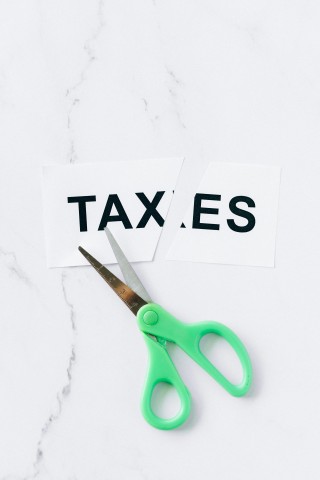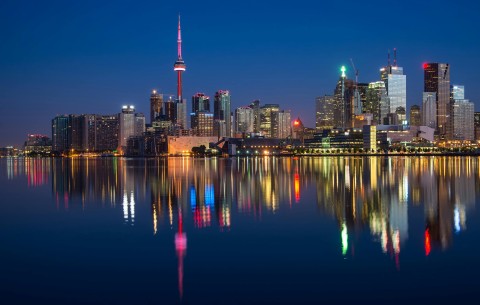
In what many progressives perceive as a race to the bottom, three of the main contenders in the federal election are competing with rival tax cuts to woo an electorate that is strapped for cash. It's widely understood that taxes are the backbone of a caring society, but that doesn’t mean that cutting taxes is always a bad thing. It’s who we are cutting them for that matters most.
While lowering taxes is often pitched to the public as a way to put more money back in people's pockets, it invariably comes at the expense of the public purse. For example, the Liberals’ recent proposal to lower the tax rate on the first tax bracket from 15 to 14 per cent suggests that this would save individuals $412, but only folks making at least $57,375 annually will see the full savings - those making less will get less back. This proposal would cut $6 billion from our current tax revenue.
The Conservatives are promising to go further, cutting the bottom bracket tax rate from 15 to 12.75 per cent. The party claims it would save the average Canadian worker $900 as long as they make over $57,375. By the time the Conservative plan took full effect in 2027-28, it would cost $14 billion in lost revenue annually.
The NDP proposes that anyone making less than $177,882 wouldn’t pay any taxes on the first $19,500 they earn, saving them about $505 annually. People in high-income brackets would have their basic personal amount lowered to $13,500, while those with incomes over $235,632 would pay tax on everything they earn. The NDP estimates these tax measures would cost the federal government $10.4 billion.
When tax cuts come in without replacing revenue streams, social supports like healthcare, education, and other services that actually save people money are put on the chopping block. And while the tax reductions proposed will benefit low-to-middle-income folks in the form of a lower tax bill, some of them will have little to no impact on those with the lowest incomes - people who rely on public services the most. But this doesn’t necessarily mean we shouldn’t lower everyday people’s taxes - it means we should be taxing everyone more fairly.
As outlined in a recent report by Canadians for Tax Fairness, the cost of living crisis didn’t happen overnight. In truth, it was 40 years in the making. Tax cuts for corporations and capital investments have gradually siphoned our wealth upwards toward a tiny sliver of the population. From 1970 to 2022, the top marginal tax rate fell from 82 per cent to 53 per cent.
In fact, the average market income of the top 0.01% has grown six times faster than the average market income of the bottom 50% of earners since 1982. Meanwhile, the real after-tax average income of the poorest half of Canadians has increased at less than half the rate of real GDP per capita growth.
When the cost of living coasts far above average incomes, it’s no wonder that people are desperate for a tax break. But promises of lower taxes for the average worker that aren’t coupled with tax increases on the wealthy are short-sighted. We need to do both.
A wealth tax of 1 per cent on wealth over $10 million, 2 per cent over $50 million, and 3 per cent over $100 million would only affect 0.5 per cent of Canadians and could raise over $30 billion per year. This could cover various tax cuts to middle- and low-income folks, with money to spare for much-needed public services, like mental health care and housing. Obstacles to bringing in this revenue from the wealthiest among us - a group of people notorious for tax dodging - are well-known but not without recourse.
Ending tax treaties with tax havens would help to prevent the wealthy from hiding their money from Canadian taxes. Increased exit taxes can be implemented as a strong deterrent to those seeking out expat status elsewhere for the purpose of tax avoidance. And at the end of the day, even obscenely wealthy people are still people - with families, communities, and reasons to want to stay where they are.
While Canada is a prosperous country with a relatively high standard of living, everyday people are struggling. But tax cuts alone won’t save us. From those suffering the most to those just getting by to those living with extreme privilege - we all want to be here. If we don’t find ways to make the richest among us contribute more, the standards that we all hold dear will continue to erode.
